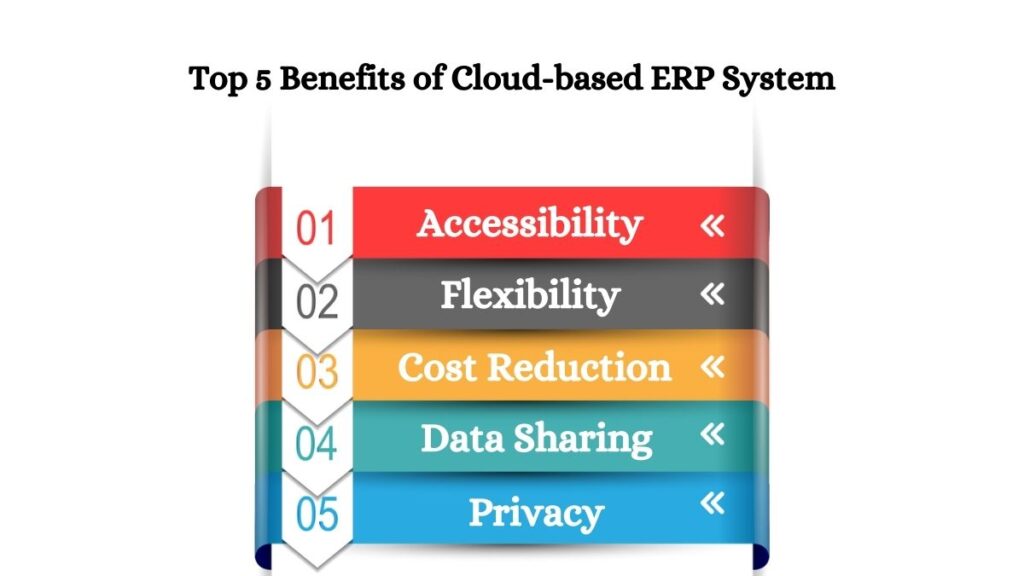Cloud-based ERP computing services are in high demand these days. Companies can get the services to shift critical data online. Not only that, but these cloud solutions also enable them to enhance the security of the data in case of any data disaster. From the cloud, they can easily restore their data and continue to operate from a secondary setup as endeavors to revive their primary system continue.
Cloud-based companies can share the data on the cloud with their internal team members and external partners as well. Cloud-based solutions come with many cyber-secure implementations in place as well. This means that the data is inherently secure from possible cyber-attacks. However, it is necessary to use a reliable ISP like Charter Spectrum for encrypted browsing as well.
Most of the solutions come with a dedicated application that has a neat user interface as well. There are many benefits of having a cloud-based ERP system. Traditionally, companies set up their ERP systems within their office premises. However, they are increasingly shifting their cloud-based ERP systems to the cloud to reap many benefits.
Top 5 benfits of cloud-based ERP system
Table of Contents

Accessibility
One of the best parts about a cloud-based ERP is the accessibility it provides. All you have to do is open access to the cloud-based application and then you can access all the data easily. With fast internet connections, you can also share these files with relevant stakeholders over the internet.
The cloud-based computing model can store data of many critical industries such as healthcare, hospitality, and transportation, etc. Cloud-based ERP solutions allow companies to integrate multiple databases and software applications on a single platform.
Flexibility
An onsite ERP solution is difficult to manage with changing business processes and demands. However, cloud-based ERP solutions, due to the regular updates and bug fixes, can provide greater flexibility to companies. They can easily enhance their ERP offerings and services on the cloud. Not only that, but cloud-based ERP systems do not require hardware and software systems. As a result, hardware failure is never a concern for companies using cloud-based ERP systems.
Cost Reduction
On-site ERP solutions come with many costs such as computing infrastructure, hardware, and software licenses. On the other hand, cloud-based ERP solutions do not require such Investments. As a result, they are much more scalable than on-premise ERP solutions.
You can easily avoid hardware costs associated with on-site ERP implementation. The money that you can save from these investments can be spent on other important business functions. Even though you may need to pay a monthly fee for cloud-based ERP subscriptions, you will still be able to enjoy cost benefits than an on-site implementation.
Data Sharing
One of the key uses of cloud-based ERP solutions is that your employees can interact quite quickly with each other. With a fast internet connection, they can use the platform to share data files and other critical company resources with each other. Not only that, but companies also integrate various applications on the cloud to enhance your company’s development, testing, and software abilities as well.
You can also share data with external stakeholders and clients using your cloud-based ERP system. Apart from this, do note that data sharing is secure due to the inherently present cyber-security features of such systems.
Privacy
Companies providing cloud-based ERP solutions invest heavily in the privacy and data security of their users. As a result, companies using such solutions never have to worry about cyber attacks or human errors. This is because of the strong security offerings of a cloud-based ERP system. Do note that cloud systems regularly backup data. They also provide access to users only after multi-factor authentication.
Apart from this, they have multiple data centers present across the globe. Cloud service providers also have a geographically decentralized infrastructure. With regular hardware maintenance and a robust disaster recovery plan, rest assured that your data will be safe on the cloud.
Also Read..!!
- Python Vs SQL: Points You Need to Know About Python and SQL
- Top Python Packages for Data Science in 2021 You Must Know
- Flask vs Django: Which Framework is Better for beginners
Conclusion
These are some of the benefits of using a cloud-based ERP system. The system will not only keep your data safe but also free up storage space on your hardware devices. The system is also cyber-secure and comes with many security features and benefits. Make sure to check out the best cloud service providers so that you can migrate your legacy ERP to the modern and more sophisticated cloud.


